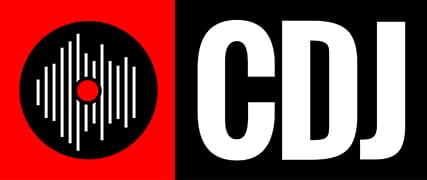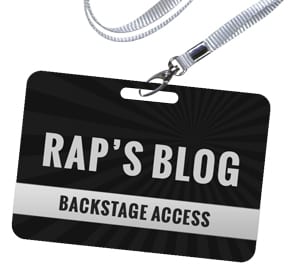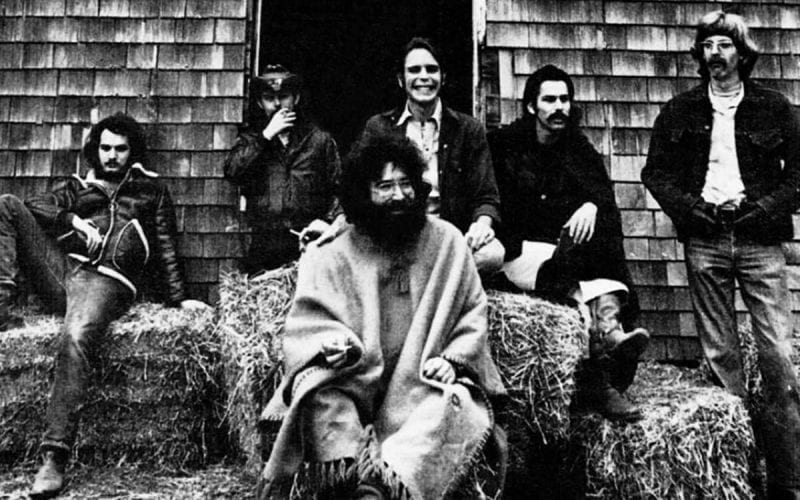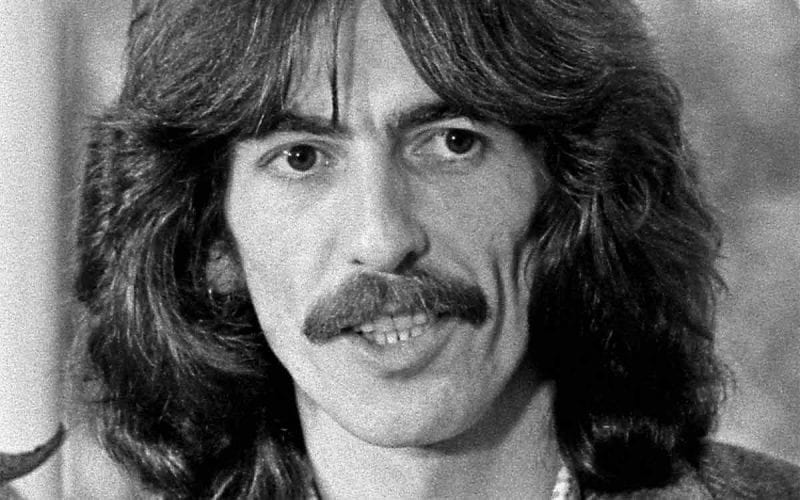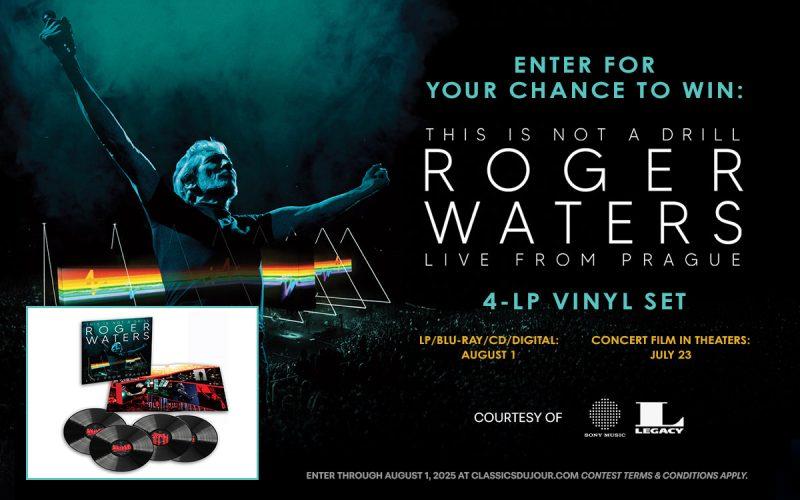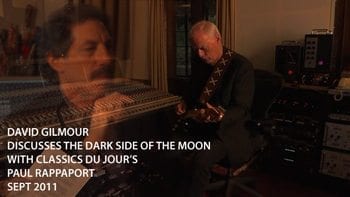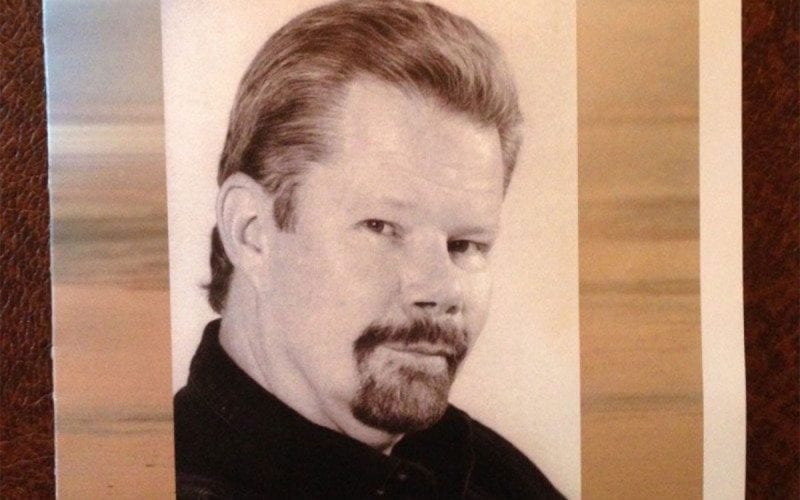
I recently attended a “celebration of life” memorial in Los Angeles for legendary rock disc jockey Bob Coburn. Some of you may know him from his days at WMET in Chicago, many of you know him from his larger than life on-air personality at KMET and later on KLOS in Los Angeles, and many more of you know him nationally and internationally as the host and interviewer for the famous live interview show “Rockline.”
Bob passed away last December after a long bout with cancer–he was 68. The most troubling thing about that to me, other than the fact that I loved working with him and was quite fond of his voice, is that I am 68.
This speaks to a much larger audience than just little ol’ me. Many of you who are fans of Classics Du Jour and who also read this column are of a similar age. When folks talk about the “golden age of rock,” they are quick to point out that great wellspring of musical creativity that just seemed to explode in the 60’s and lasted into the 90’s, but the thing that I find just as intriguing is the fact that when all of this happened, there was a built-in audience waiting to hear and embrace the music, which is what made the cycle complete.
It’s like when Keith Richards inducted Leo Fender into the Rock and Roll Hall Of Fame. He said that Leo’s real genius wasn’t the fact that he had a huge hand in inventing the solid body electric guitar but that he also produced the thing you needed to plug it into to play—the famous Fender amplifier. One doesn’t work without the other.
So it was with the music that we now refer to as Classic Rock. Which brings us back to Bob, me, and most importantly YOU, who really represent all of US. In the 60’s a counter culture had grown out of the “beat” movement from the 50’s, which in turn helped spurn the folk movement of the 60’s, which became electrified, and the rest is history. There was an evolution in the way many of us viewed the world, stretching the mind was in vogue, both via the existential philosophies of great thinkers like Jean Paul Sartre and Albert Camus, books by Jack Kerouac and Allen Ginsberg, and by the experimental drug use of Marijuana, Mescaline, and LSD. The civil rights and women’s movements were in full force as well as half the nation protesting the Vietnam War.
All of this tumult was bound up in a new kind of music, which not only sounded very different from the lighthearted pop music of the day, but also came with heavy life’s messages about the possibilities of changing the world. Songs like “(Chicago) We Can Change The World,” by Crosby, Stills, and Nash “Subterranean Homesick Blues” by Bob Dylan and “Revolution” by the Beatles were hugely popular. Many of us baby boomers were getting our signals of how to think and act in this new age from the music that was being created by our peers.
Not only was all of this music being produced and performed, but just like that Fender amplifier there was something to plug it into–a waiting and wanting audience, and that audience was US. We not only listened to the music but we listened to it in a different way. It was not only entertainment but it fueled our psyches, helped shape our points of view, gave us hope, and in many ways completed, and healed us.
Some of us who grew up having that music become an integral part of our lives wound up in the music business. Because we were so moved by the music we didn’t view our new found vocations so much as a job but more so as a mission, to help spread the word and help grow this new culture.
I joined the business as a college rep for Columbia Records in 1969. By 1971 I had a real job and began visiting FM underground radio stations in Los Angeles as a local promotion man, bringing the latest offerings from Bob Dylan, Janis Joplin, Taj Mahal, Ten Years After, Pink Floyd, etc., etc. to be listened to by the disc jockeys and then for them to share the music with their listeners. A most amazing thing was that we were mostly cut from the same cloth. The radio folks and I seemed to have more in common with each other than we did with our respective bosses because we viewed ourselves as this hip alternative nation or tribe of counter culture folks who were trying to spread the word as opposed to the corporations who owned their radio stations and my record company. Those corporations existed to make money, WE, on the other hand were on a mission to spread the music and to amplify this counter culture, which soon would become the culture of the day.
It was in the 70’s that I first met Bob Coburn. He was a DJ at KMET (he’d also go on to be Program Director and Music Director for WMET in Chicago), but the absolute first thing Bob was, was a music man. The music is what drove him, and wherever he worked, turning on his listening audience to new great stuff was his passion. Pam Bellamy who was the PD for KMET in its heyday remembers the first time Bob heard “More Than A Feeling” by Boston. He literally ran into her office wildly excited and said, “We have to add this right away—I mean, like NOW!”
And that’s how it was for all of us—no matter what our job description was, marketing manager, publicist, or A&R person at a record label, or disc jockey, program director, or promotions person at a radio station, or sales person at Tower Records, Licorice Pizza, or The Warehouse record stores—we were all mostly the same age, and we were all music people first. It was like one big family of like minds, hearts, and souls.
So the thing that hurts so much about losing Bob is, that we have lost one of US—one of the key members of the tribe.
One of my favorite memories of Bob is when we were broadcasting Bruce Springsteen live from the Roxy over KMET’s airwaves in 1978. At the time there was a lot of friction between the general manager of the radio station and the staff. Legendary rock jock Mary Turner was supposed to be the host that evening as she was an early supporter and had become a friend of Bruce. But the GM had taken it upon himself to write the introduction to the show and it was very lame to say the least. So Mary refused to read it. This incensed the GM, and I swear I saw smoke coming out of his ears. So he turns to Coburn and says, “ You are now taking over, you are now the host of the show. But I want you to go back to the station and do the fill-ins from there.” Coburn looks up and says, “The hell with that, I want to watch the show!!” That’s how much the music meant to Bob (and all of us). He had just been offered the job to be the voice on what would become one of the greatest live events in rock and roll history but all he could think of was not missing seeing the show!
Unfortunately, Bob did miss seeing that performance in person as he was also a good soldier and went back to the KMET studios to host the show from there. He did, however, get to listen to it, just as the rest of Southern California did and his voice is the one heard on the early bootlegs of that legendary incredible performance and event.
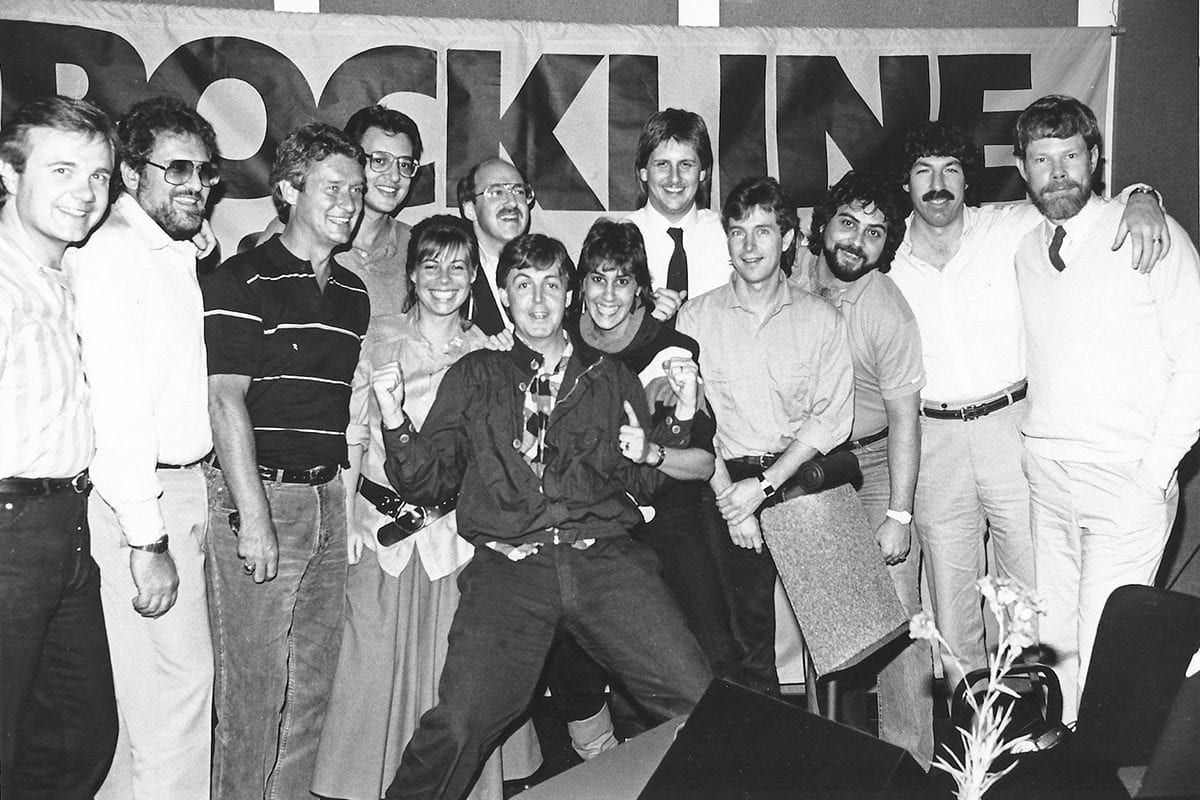
A few years ago Bob was asked to return to KLOS after a long stint of being off the air except for his continuing Rockline shows. He was asked to do a special on-air shift every Sunday evening. He said he would do it if he didn’t have to follow the format and could do a free form radio show like from back in the day. I got in touch with him and he was so excited he sounded like a kid over the phone. “Rap, I get to play whatever I want, for four hours!!” Once again, here was Bob, a man of the music bringing the music to the people.
Aside from being blessed with a great voice and having learned how to do great interviews, Bob, being the consummate professional, was also very big on preparation. Because Rockline was a live show with very little delay he prided himself on not only knowing everything he could about an artist, but also being prepared in advance for any pit falls that might occur during a show—perhaps a weird call coming from an Ex-wife or girlfriend, the artist or band having a propensity to show up for interviews bombed out of their minds, etc., etc..
We (Columbia Records) were having Billy Joel live on Rockline one Monday evening and I took Billy and his entourage out to dinner before the show. At dinner I got this great idea to pull a fun prank on the Rockline team. I told Billy about Bob and how he liked to be really buttoned up with everything, and also about Howie Gillman, who was executive producer at the time and was known as being more the executive type and a bit straight and narrow too boot–great guy, just not from the hippie tribe. So I said to Billy, who is really good at acting and imitations, that just for fun let’s pretend that he’s drunk out of his mind showing up for the interview. For this Rockline appearance we would be going to the New York studios where Howie Gillman would be, but Bob would be doing the interview and taking calls from the LA studios where he was located. We could get a rise out of Howie without upsetting Bob. Billy loved the idea and then one-upped me by taking a “Sweet ‘N Low” (substitute) sugar package and dusting his nose so that it would appear like he was doing even much more than just drinking!
We arrive at the Rockline studios, and I immediately run up to Howie. “Hey Howie, we have a bit of a situation here, but I don’t want you to get too wound about it. Billy has kind of been drinking all day and he’s just a bit tipsy, but believe me, he is a professional and will be totally fine as soon as he hits the mic.” I knew it wouldn’t take much to rattle Howie, who looked immediately ashen from this news. But if that wasn’t enough, Billy jumped out from right behind me doing the wobbly thing, his nose quite dusted with white powder, eyes bulging and shifting from left to right, and in slurring speech looked up at Howie and said, “Whoooo, the f*ck’s are you’s ?!!!!!” “AHHHHHHHHHHHH!!” Howie screamed running all the way down the hallway towards his office diving for the phone. He was visibly shaking by the time I got to him. “I,…I,….I gotta call Coburn, I gotta warn him, oh my God, what are we going to do???!!!! The whole country is listening!!”
“Howie, Howie, calm down,” I said, “Whoa, we were just trying to get a rise out of you for fun, didn’t think we’d upset you this much. So Sorry.” But Billy had been so persuasive in his drunk performance, that Howie didn’t believe me. “You’re lying Rappaport, you’re just trying to calm me down, but we really have to call Bob, you know how he is, he will be really pissed if we don’t warn him—we have to warn Coburn!”
It took me a full five minutes to really calm him down and assure him that it was all just a joke. “Really,” I implored, “We cooked this plan up at dinner, come and meet the real Billy Joel he’s truly a great guy, you’ll love him.”
Here’s the best part–I begin to escort Howie down the hall to meet Billy, but unbeknownst to me because this was around Halloween time, Bill had discovered a bunch of costumes in an equipment area, had put on a really creepy mask and was chasing people down the hall screaming his head off at them. Gillman saw this and went nuts all over again. “AHHHHHHHHHHH!! He ran back down the hall again towards his phone screaming, “God damn it Rappaport!!! You promotion guys are all alike!! I knew you were lying!!!! GOD DAMN IT! Coburn’s going to lose his mind and I’m gonna get blamed for it!!!!”
This time it took me TEN minutes to finally calm him down. Hell, with everything that Billy was doing I wouldn’t have believed me either! I even had to physically hang up the phone for him as he was half way finished dialing Bob getting ready to freak out all over him.
It’s show time–Billy walks into the studio sits down, puts his head phones on, brings the mic close and Coburn talking from the LA studios says, “Hi Billy how are you tonight?” Deciding to take one more shot at Howie, Billy slurs his speech, “Well howwwwdy, B,…B…,Bob, I’m doin’ GREAAAAT!” I can hear the trepidation in Coburn’s voice, “Are, are, you OK??” Gilman runs out of the studio.
“Yeah, yeah,” Billy says straight, “We were just having some fun with Howie.” But now Coburn, who is a pretty sharp guy, isn’t so sure himself and is wondering if he’s being tricked and if, in fact, he’s really going to have to deal with a drunk artist on the air. It took another five minutes for Billy to categorically assure Bob that everything was fine. Ha, ha, oh my God, what a night.
Anyway, we are all going to miss one of the all-time great rock disc jockeys and radio innovators of our time. And I will personally miss that magic deep voice he was blessed with and also sharing our passion for great rock music.
Bob’s nick name was BC and he used to end all of his shows with “B C-ing you.”
B C-ing you Bob, you made the rock world and the world in general a much brighter, vibrant, and happy place.
© Paul Rappaport 2017
